Albert is a financial app that offers cash advances of up to $250 that are repaid on your next payday. Albert offers some useful money management features, but the $14.99 monthly fee required for cash advances is on the high end.
If you’re looking for alternatives to Albert, here are some of the most popular options.
Table of Contents
11 best apps like Albert
- Most like Albert: Empower
- No extra fees: Brigit
- The app with attitude: Cleo
- Transfer up to $100 a day: Earnin
- Lowest monthly subscription fee: Dave
- If you need a very small advance: Floatme
- Option to win cash: Klover
- No monthly fee: MoneyLion Instacash
- Small personal loans: Possible Finance
- Overdraft protection up to $200: Chime
- Fee-free advances up to $500: Varo
Best cash advance apps like Albert

Most like Albert: Empower Cash Advance
Advance: Up to $250
This is the app that is most like Albert. Empower allows you to get an instant cash advance of up to $250. One of the standout features is the ability to link an external bank account, enabling seamless transfers and higher advance amounts directly to your account without the hassle.
Empower won’t check your credit, but it will charge you $8/month in membership fees. If you choose to stick with your existing bank account (instead of opening a spending account with them), advances will cost $3 per deposit. If you do sign up for their spending account, your debit card offers some useful cash-back rewards.
No extra fees: Brigit
Advance: Up to $250
Brigit stands out from most cash advance apps by offering a no-fee model. This is a significant advantage over competitors that often charge for their basic services. That free plan will get you basic financial monitoring and spending insights — but not cash advances. Those require a subscription to the Pro Plan, which costs $9.99 per month. It includes everything in the basic plan, plus instant deposits, flexible repayment options, protections from identity theft and access to credit-building products.
Brigit has no credit check, no late fees, no tips and charges no interest.
To sign up, download the Brigit app, connect your primary checking account, and select the Pro Plan. Your bank account must:
- Be active for at least 60 days
- Have a balance above $0
- Have three recurring deposits from the same source
Borrowers initially won’t be able to borrow the full $250. You may start as low as $50 and have to work your way up as you develop a pattern of on-time repayments.
READ MORE: Here are 9 Cash Advance Apps Like Brigit + 11 Other Options
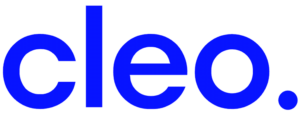
The app with attitude: Cleo
Advance: Up to $250
Cleo is built to be conversational like you’re chatting with a friend, not an AI bot. Cleo will roast your spending habits or praise you if you make smart choices. Cleo doesn’t do credit checks or charge late or interest fees. It does require membership in its premium plan ($5.99/month) if you want to be able to accept cash advances. Gig workers are eligible for Cleo.
First-time borrowers will be eligible for a maximum of $100, but some will only be able to borrow $20.
It will take 2-3 business days to get your advance. If you need it faster, you will have to pay an express fee ranging from $3.99 to $9.99.
READ MORE: Here are 10 Cash Advance Apps Like Cleo + 12 Other Options
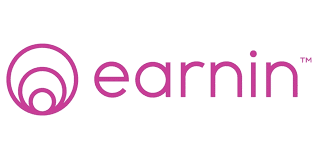
Transfer up to $100 a day: Earnin
Advance: Up to $100 per day or $750 per pay period
Earnin is unique because you can borrow money more than once during the same pay cycle, up to $750. Most other apps only allow one advance per pay period. However, the Earnin app only works for borrowers with steady employment. Requirements include:
- A regular paycheck
- A fixed working location
- An employer-provided email address
Earnin’s repayment dates are also inflexible.
Earnin doesn’t check your credit score, but it does monitor your bank activity. Its Balance Shield service protects you so that you don’t need to worry about unexpected overdrafts. Earnin also offers financial and savings tools to help you get the most out of your money.
You’ll have to wait 1-3 business days to get your money. Otherwise, you’ll need to pay an optional fast-funding fee that ranges from $ 1.99 to $4.99. Earnin also requests optional tips of up to $13 per advance.

Lowest monthly subscription fee: Dave
Probably the best-known cash advance app right now is Dave. Boasting 10 million members and counting, Dave lets you get paid up to two days early, build your credit history and get up to $500 in interest-free advances with no hidden fees and no credit check.
Dave is designed to help you manage your finances by offering cash advances of up to $100. A key benefit of using Dave is its focus on helping users avoid overdraft fees, a common issue with traditional banking and many cash advance apps, making it a valuable tool for those looking to keep their banking costs low.
Dave has a $1 monthly membership fee, which includes help with budgeting, setting financial goals and even balance monitoring. Users who sign up for the banking plan can also use their on-time rental payments to help them build credit.
If you need your advance from Dave instantly, you’ll have to pay an optional fast-funding fee that ranges from $3 to $25. Dave also requests optional tips of up to 25% of the amount borrowed.
READ MORE: Apps Like Dave: Here are 12 More Cash Advance Options
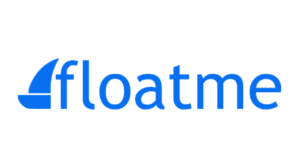
If you need a very small advance: FloatMe
Advance: up to $50
FloatMe won’t check your credit, but it will charge you $3.99 per month to get “floats”. The Floatme app also monitors your bank accounts and gives insights into your spending and savings habits. That’s all this app does. There are not a lot of additional features or bells and whistles.
Though $50 isn’t much, first-time borrowers likely won’t be able to borrow the maximum amount. Most subscribers start with “floats” of $10 to $20.
In addition, you will have to pay a fee for instant transfers.
- $10 = $3.00 fee
- $20 = $4.00 fee
- $30+ = $5.00 fee.
With the $4 monthly fee and a $3 fee for an instant transfer, you could end up paying $7 in fees to advance yourself $10. That’s the equivalent of an annual percentage rate of 1824% – far higher than what you’d pay at payday loan storefronts.
READ MORE: Here are 10 Cash Advance Apps Like FloatMe + 13 Other Options

Option to win cash: Klover
Advance: Up to $200
Klover relies on points to help users “boost” their advance amounts. In addition to repaying each advance you get on time; these points can be earned by doing small tasks like watching videos or ads.
Klover offers the chance to win $100 every day, and five more people will win $20.
Klover charges no fees for basic advances, a $3.99 per month membership fee for Klover+ which offers credit monitoring and financial advising.
Klover also charges an express funding fee ranging from $2.99 to $12.29.
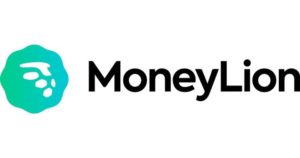
No monthly fee: MoneyLion Instacash
Advance: Up to $500 in Instacash advances, or $1,000 if you use other MoneyLion products
Instacash is MoneyLion’s cash advance service. There is no monthly fee and no credit check is required. However, it will probably require access to your current bank accounts.
The advances are free (aside from the optional tip) if you’re patient. If you need the money right away, you’ll have to pay the “Turbo” service fee. The amount of that fee varies by the amount of your advance. MoneyLion charges anywhere from $1 to $19.99 per month, depending on which services you opt into. Their other services include banking, financial planning, credit building, investing cashback and more.
READ MORE: Best Cash Advance Apps Like MoneyLion: 17 Other Options

Small personal loans: Possible Finance
Advance: Up to $500
Unlike the other services on this list, Possible Finance’s advances are actually personal loans. This means that interest rates are higher, loan amounts are larger and repayment times are more flexible.
Interest rates on a Possible Finance loan are less than what you’d pay a payday lender. However, they’re still significantly higher than what you’d pay for a more-traditional personal loan, averaging about 150% APR. Still, this would be a better option than a payday loan, if only because it helps you avoid the payday loan debt trap.
Possible will likely run a soft credit check, but the platform promises that your credit score will not be a factor for approval and it will not run a hard credit check after you complete a loan application.
Fees range from $10 to $25 for each $100 you borrow. The amount you’ll pay depends on how much you request.
READ MORE: Apps Like Possible Finance: 19 More Cash Advance Options
Pro tip: Don’t pay too much attention to the suggested tipping amounts. They’re designed to maximize profits for the lender. Your goal is to get a quick loan that costs less than a traditional payday loan.
Online banking apps like Albert
Because Albert offers an array of money management services, the app has more in common with online banking apps than with straightforward cash advance apps. In that respect, Chime and Varo are two of Albert’s top competitors. Chime’s SpotMe feature offers no overdraft fees, a significant advantage over traditional banking services that often charge for overdrafts, making it an ideal solution for individuals prone to incurring such extra expenses. Here’s a quick look at each of them:

Overdraft protection up to $200: Chime
Chime is probably Albert’s biggest competitor. Chime is set up to be a millennial-friendly mobile banking option and to serve people whom banks have traditionally underserved.
Like Albert, Chime offers a checking account (called “spending) and a savings account. Spending account holders are issued a Visa debit card that can be used anywhere. If you’re looking to take cash out, most of the ATMs you’ll find inside of other stores are members of Chime’s network.
Chime doesn’t offer traditional cash advances. Instead, Chime SpotMe offers a line of credit to protect users from overdrafts. SpotMe will allow users to cover expenses up to $200 that would otherwise overdraft their accounts. You don’t have to request the loan; instead, Chime simply approves purchases until the user reaches their credit limit.
A user’s credit limit starts at $40 when the user first signs up. Over time, as a good repayment history is built, that limit can be increased up to $200.
Qualifying for the SpotMe program requires at least one direct deposit of $200 or more. That direct deposit can come from the following sources:
- Employer
- Payroll provider
- Gig economy payer — only if they use the ACH (Automated Clearing House) system
- Government benefits payer
Instant payments from gig payers and deposits from sources like PayPal or other personal accounts aren’t accepted in the SpotMe program.
If you have a Chime account but SpotMe won’t work for you, there are several other cash advance apps that work seamlessly with Chime.
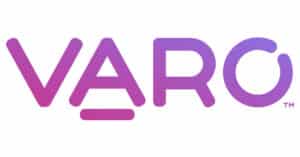
Fee-free advances up to $500: Varo
Varo is quickly gaining in popularity. Founded the same year as Albert, in 2020, Varo received its National Banking Charter from the OCC (Office of the Comptroller of the Currency) as well as regulatory approvals from the FDIC and the Federal Reserve. It’s the first fintech company of its kind to receive this charter.
Currently, Varo is fee-free, allowing users to sign up for checking and savings accounts for free. The company doesn’t even require applicants to start with a minimum balance. Users can use their mobile devices to deposit checks and can deposit cash into their accounts at any Green Dot location.
Varo’s cash advance program is called “Varo Advance.” This program is more like Albert’s cash advances than Chime’s SpotMe. Varo Advance allows users to advance between $20 to $250 of their next direct deposit. Eventually users can work their way up to advances of $500.
The cost for advances ranges from $1.60 (for $20) to $40 (for $500), depending on the advance amount. No tips are requested, and repayment plans are flexible. They allow customers 30 days to repay their advances in full. The customer can choose how they want to do that.
There are several cash advance apps that work with Varo.
Employer-sponsored cash advance apps
You’ve probably noticed that a lot of these apps require users to have direct deposits from W-2 employers or other official sources. It’s worth knowing that there are also cash advance apps that can be sponsored by employers and gig payers that offer early access to your wages. Here are some of them.
Employer-sponsored earned wage access apps
These apps offer early access to the wages you’ve already earned. However, your employer will have to participate.
One@Work (formerly Even Instapay)
- Advance: Varies—employees are allowed access to up to 50% of their “earned wages”
- Fees: No
- Pre-paid card? No, but employees can pick up cash advances at Walmart’s Money Centers
Branch
- Advance: Up to 50% of their earned wages for the current pay period
- Fees: Not for the employees
- Prepaid card? The “Branch card” that acts like a debit card. Employees can also connect their Apple and Google wallets to their Branch apps.
Axos Bank Direct Deposit Express
- Advance: Axos deposits your paycheck as soon as the payroll is processed by your employer instead of waiting for the ACH transfer to complete
- Fees: No
- Pre-paid card? No, but it does require you to have an Axos Bank account, which will come with a debit card
Dailypay
- Advance: Up to 100% of earned pay within the current pay period
- Fees: No
- Pre-paid card? Dailypay doesn’t offer your wages on pre-paid cards, but the app requires an existing bank account, so you should be able to use your debit card
Flexwage
- Advance: Flexwage just says that employees can access “a portion” of the pay they’ve earned. You can’t see how much that “portion” is without an employer-sponsored account
- Fees: Not for the employees
- Pre-paid card? Yes — wages are dispersed to a “FlexCard”. The Flexcard is a Visa debit card
PayActiv
- Advance: It isn’t clear. The documentation just says employees can access “a portion” of their earned wages.
- Fees: No
- Pre-paid card? Yes – in addition to other types of direct deposit, PayActiv also offers pre-paid cards.
Peer-to-peer loan apps
If you’re not having much luck with cash advances or online banking apps, you might want to try a peer-to-peer lending app. There are lots of them out there, but these two, in particular, are worth your interest:

SoLo Funds
SoLo Funds takes the lending platform and adds a social networking layer to it. Borrowers post requests for money. The amount you can ask for is limited — it’s about what you’d be able to get from a cash advance app. Lenders then choose which requests they want to fund. Over time, as you repay these loans on time, you build up your “social score,” which helps you qualify for larger borrowing limits and better loan terms.
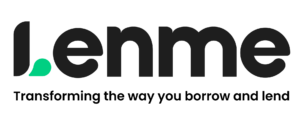
LenMe
LenMe works differently than most P2P lending apps. Borrowers post requests for funds. Lenders then compete to fund the request. This way the borrower has the power — they can choose the lender that offers them the terms they like the best. This type of platform also helps to keep the offers competitive.
READ MORE: 33% of Americans have used a cash advance app
Albert app: How it works
Albert offers users banking, as well as investment advice and savings help. It does this by connecting to your bank account (or having you open an Albert Cash account) and then monitoring your spending activity.
To help users build up emergency funds and safety nets, the app will quietly move money from your checking account into an Albert savings account. You can tell the app how much you want to stash away each week or allow Albert to do “round-ups” on your purchases. This is where, if you spend $1.49 on something, Albert will send 51 cents into your savings. The app tracks these round-ups and transfers the total once a week. The mobile app is available for Android and iOS for free in the app store.
READ MORE: Albert review
Apps like Albert are better than payday loans
Apps like Albert, unlike payday loans, boast the advantage of having no interest charges or late fees, making them a more financially sound choice. Payday loans are designed to trap you in a debt cycle that is nearly impossible to escape. Payday lenders charge egregiously high interest rates (some as much as 600% or more!) for a short-term loan you repay from your next paycheck, and they have costly fees. Many payday loan borrowers are forced to roll over their loans or request payday loan extended payment plans. More than 90% of payday loan borrowers regret their original payday loan.
On the other hand, apps like Albert are designed to help you build financial stability. They won’t allow you to borrow more than you can afford to pay back immediately. They rarely charge interest or fees. Eligibility is simple. And most of them offer extra services like banking, financial advice, etc.
READ MORE: Considering a payday loan? Know the pros and cons
The bottom line
Apps like Albert can be a good way to avoid payday loans. They cost less and often have more flexible repayment terms. But watch out for apps that require a “premium” membership or a high monthly fee. The idea is to borrow money while paying less than you’d pay for a payday loan.

